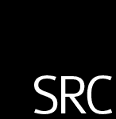Location Forensics Expert Witness
- Detailed analysis of use of devices/phones including location points and other location evidence stored on devices.
- Information stored within Cloud applications including data such as that present as Google location points.
- Reviewing CCTV and ANPR data to compare with digital location evidence.
- Cell site analysis including combining this location evidence with others or comparing between various sources.
- Tagging Devices (Electronic tagging as part of Electronic Monitoring) when alleged to be involved in a criminal event.
- The accuracy of Global Navigation Satellite Systems (GNSS) - Global Positioning System (GPS) in the context of the data in your case.
- Vehicle forensics including from telematics systems (inside the car) and vehicle/other trackers.
- Smart Tachograph devices (Smart Tacho 2) which implement GPS.
Some further details about location forensics are discussed in the following (click on the drop-down arrow):
Mobile Device Location Storage
Modern mobile smart phones (such as Androids and iPhone) may store a range of potential location-based information, including WiFi point use, location estimations made by the phone (such as iPhone location points), logs of use of mapping application usage, health application logs (such as steps and floors climbed) and also even conduct their own WiFi and cellular scanning. Where this evidence is present, it may exceed the ability of cell site analysis. As technology has moved on, cell site analysis is now often the location evidence of last resort.
Although it may be assumed a device logs its IP address, the question of 'where?' evidence is rarely addressed by IP address assignment (which is sometimes wrongly assumed to be the only/key evidence to address this question since it may have been used to initially 'find' the devices).
Location evidence may also be present in general use and device data stored, for example, if there photographs from a particular area, users conversing about visits to particular locations or emails of bookings at X hotel etc.
Most importantly, the accuracy of each source of location evidence is often crucial to consider, since although a mobile device may have a GPS receiver, the location evidence on a device may actually be approximating the location, based on the mobile and WiFi networks in the area or otherwise. Hence, it is important to consider the limitations of what can be determined for each source in relation to the locations of a device. It is also generally important to combine this with other device evidence, such as the steps/health information and other interactions with the device even to the extent of if the phone is picked up, its screen lit up etc. which all may be logged.
There may also be other forms of stored evidence such as application and Cloud location point data (see below).
Cloud Storage - e.g. Google data, Apple and Google Maps
Location data may be stored on a device from applications (apps) running on the it, as well as the data being stored in Cloud accounts. For example, Google location and maps point storage. From a user's perspective they may not know where/how this data is stored.
Such application and Cloud data may not by accurate (sometimes by considerable amounts), and will need to be fully assessed, to determine what can and cannot be used/concluded and the limitations thereof of such evidence.
Vehicle Trackers, Sat Navs and Telematics
Trackers may be fitted internal to vehicles by the manufacturer or after market as well as for insurance purposes (black boxes). These tracker systems may be also buit-in to Tachograph systems providing even more location information within modern lorries.
Vehicles may also now have synchronised usually phone applications provided by car manufacturers and data may also be stored directly within the vehicle computer system itself (telematics). In all cases, this information may used as evidence in cases in terms of the location of the vehicle and also interactions with it including things such as ignition events and even when doors were opened/closed etc.
As of April 2018, all new model type cars should be fitted with an eCall system allowing GPS location information to be sent to the emergency services via a tracker and SIM card unit fitted to the car. Hence all new model cars theoretically after this date will contain a type of tracker and SIM card. The SIM cards in the absence of other information, may also be used to perform cell site analysis.
Users may also use Satellite Navigation (Sat Nav) units which can also be examined in order to establish locations/journeys of use and the accuracy of this information assessed.
Tachographs
Digital tachographs are specific boxes that are fitted to lorries (Vehicle Unit (VU)). The initial digital tachographs are known as are first-generation. They are more accurate than the previous analogue systems, however, these units do not contain a GPS receiver, relying instead on motion and wheel sensors.
After the development of digital tachographs, the unit was progressed involving a combination of tachograph and tracker-based technologies. These are known as Smart Tacho 2 devices. These devices are mandated to log specific information including speeding/journey events and locations. These can be evaluated to determine if use is consistent/inconsistent with specific scenarios/events.
Tracker systems may be also buit-in to Tachograph systems providing even more location information within modern lorries. Where this is the case, the data can be obtained and Sam can analyse use including vehicle speeds and other relevant information.
Electronic Tagging/Monitoring - Personal Identification Devices (PIDs)
Electronic tags are often fitted to past offenders to monitor their movements, excluding them from certain zones and setting up a virtual location and time-based curfew. Modern tags contain GPS receivers which they use to log the location information which is then stored by the monitoring service.
Sam is able to ensure you have been provided with the correct data and statements. She is able to analyse the location and other tag logging data from, when it is alleged a tagged individual has been involved in a further crime or other relevant event.
Sam can evaluate the location of use including preparing full chronologies for relevant time periods. She can also compare the tag evidence it to other case evidence (including things like the use of a phone/cell site analysis in a co-location assessment). She can fully assess consistencies/inconsistencies in the location evidence as well as calculate tolerances and error factors as well as clearly discuss limitations.
I am confused - what is GNSS, is this GPS?
Global Navigation Satellite System (GNSS) is the overall term that encompasses all different types of satellite systems which are currently in use and used in the past to determine locations.
Technically Global Positioning System (GPS) is a set of 31 satellites owned by the US. In fact the night sky has many different satellite systems which can be used for determining location.
This may mean using GPS to refer to location evidence, may not be fully technically accurate when referring to satellite location information, since a device instead may be using other satellites systems (known as constellations) or even combinations of the systems.
However, Global Positioning System (GPS) is now the everyday used generic term to mean location data from satellites.
GPS Accuracy
In my experience, it may be assumed that location evidence is derived from satellite location evidence (generally referred to as GPS), however, this is not always the case. In some cases the data is being derived from other methods and is being approxmated only. Sam will fully assess the origin of the data in order to evaluate its accuracy and limitations, and establish if it can be stated the evidence is from GPS or otherwise.
Sam also finds that it is generally assumed that GPS and tracker devices are completely accurate. However, there are various aspect to assessing this in practice, particularly when individual points and speeds are siginficant in cases. Also it is important to review the lead up and after use of events in order to establish use and ensure the device is operating as expected in order to determine the limitations of the data and conclusions that can be derived from it.
Sam can firstly ensure you have the correct and original data source of your location data case, and then make an assessment of all of the data and the operation of the tracker system and GPS unit (or other origin of the data).
Selecting Best Source(s) of Location Evidence
Sam can evaluate the 'best' source(s) of location evidence, involving computers, routers and mobile devices, cell site analysis and trackers/vehicles (see above) including determining the accuracy of the evidence and combining the evidential sources. SRC can also combine/assess this evidence to determine its accuracy and to provide chronologies of locations and general device use.
Sam can also assess comparisons between sources of location evidence in order to assess evidence of attribution, including correlations and differences in the use. For example, comparing the location points/cell site analysis of a phone and the movements of a vehicle's tracker.
Demystifying Location Evidence
One of the issues with location evidence is that it may be technically presented and not digestable by Courts. For example, some experts use the term Global Navigation Satellite System (GNSS) to refer to what generally is referred to by legal teams/Court as GPS.
Sam will attempt to demystifying the technical information and data, primarily focusing on providing information that can be understood by Courts as well as being technically accurate.

Instructing SRC in a location forensics case
Usually SRC in a criminal investigation and SRC can review various evidence of vehicle use, location based information on devices with cell site analysis to establish potential use of devices in/around vehicles on its own or as part of attribution evidence or other assessments. Sam can also determine the 'best source' of location evidence available in your case.
When instructing or contacting SRC it is useful if you can initially supply the following:
- Trial date (including schedule time) and any Court or other deadlines.
- Statements and reports in relation to the technical evidence and seized digital devices.
- Any technical exhibits supplied so far including tracker data and/or call data.
- MG5 or case bundle.
- Details of defence/defence statement and/or instructions of what may be required.
Location forensics cases can pose issues in terms of what data is available and how it may be provided and evaluated. Hence, SRC can provide you with initial reviews to assist with establishing what may be required and can provide assistance in what location digital evidence may be available and also how to obtain this evidence.
Sam may also take on a limited number of civil/family matters particularly if they involve the investigation of a death/serious injury or involve children. Please provide details of your case when initially contacting.
For details of previous cases in which SRC have been instructed involving location based forensics see Sam's previous case list.


